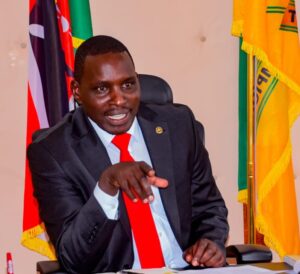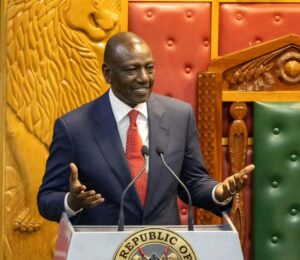Patients Bear Brunt of Soaring Healthcare Expenses Amid Demonstrations

The delicate interplay between civic demonstrations and essential services like healthcare has come under scrutiny as Smart Applications International and the Kenya Healthcare Federation collaborate to dissect the repercussions of political protests on the healthcare sector.
In a groundbreaking partnership, these organizations employ data-driven insights to address the escalating healthcare costs resulting from civic unrest in Kenya.
As Kenya’s democratic landscape thrives on the freedom to express dissent, the repercussions on vital sectors such as healthcare have become evident.
The balance between safeguarding civil liberties and maintaining public well-being necessitates a thorough examination of the correlation between political demonstrations and healthcare accessibility.
With bipartisan talks underway, the collaboration between Smart Applications International and the Kenya Healthcare Federation seeks to foster economic revival and tangible benefits for Kenyan citizens.
The realm of healthcare has borne the brunt of these demonstrations, with effects extending beyond what might be expected.
Smart Applications International, in partnership with the Kenya Healthcare Federation, employs innovative data analytics tools to scrutinize the ‘Maandamano’ impact on the healthcare value chain.
The goal is to provide comprehensive insights into the dynamics of healthcare service costs across major cities and towns during periods of unrest.
Dr. Kanyenje Gakombe, Chairman of the Kenya Healthcare Federation, highlights the significance of this collaboration.
The insights gleaned from this endeavour guide political leaders and healthcare stakeholders toward a deeper understanding of industry dynamics, fostering well-informed decisions. This data-driven insight equips stakeholders to coexist harmoniously, driving economic growth and ensuring widespread access to superior healthcare.
The analysis, spanning key demonstration periods, reveals patterns of increased healthcare costs in tandem with protests. Notably, the Saba Saba demonstrations triggered fluctuations in healthcare service expenses across Nairobi, Mombasa, and Kisumu. Consumables, consultations, procedures, medications, radiology, and laboratory tests all experienced cost surges during these periods.
The data sheds light on factors influencing these cost dynamics. Supply chain disruptions, increased demand due to unrest, operational challenges, safety measures, and limited facility access during demonstrations all play a role in driving up healthcare costs.
These findings emphasize the need for hospitals to prepare for disruptions in patient flow during periods of unrest, and patients to anticipate elevated costs for healthcare services.
“Noteworthy trends emerge regarding revenue and patient traffic during demonstration periods. Despite fluctuations, the relationship between revenue and patient traffic underscores the complex interplay between these two factors. Patient safety concerns, resource allocation challenges, and the uncertainty wrought by demonstrations impact patient behavior and revenue streams,” explained Dr. Gakombe.

Harrison Muiru, Group Managing Director at Smart Applications International, emphasizes the importance of understanding these dynamics. “Recognizing these trends enables effective cost-management strategies and ensures quality healthcare delivery even during challenging circumstances.”
“Investigating the healthcare value chain through the lens of business intelligence and analytics tools, our collaborative efforts have delved deep into the effects witnessed across major cities and towns during this critical period,” added Mr. Muiru.
“Ultimately, this strategic partnership has not only facilitated the extraction of valuable data insights but also illuminated a path for our political leaders and healthcare business heads. By shedding light on the intricacies of the industry’s dynamics, this data-driven insight equips us with the clarity needed to forge informed decisions, guiding our path forward while fostering co-existence for sustained economic growth,” concluded Dr. Theuri.




